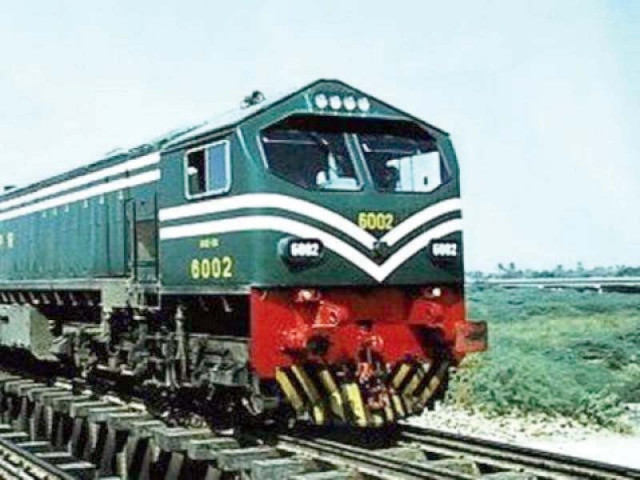ML-I cost may be raised to $10b
Railways ministry proposes to increase cost of CPEC railway project by $3 billion

Just two years after its approval, the cost of the largest but stalled project of China-Pakistan Economic Corridor (CPEC) – Mainline-I – has been proposed to be increased by a whopping 45%, or $3 billion, to nearly $10 billion.
The Ministry of Railways has presented the updated cost of the project to the Planning Commission for onward submission to the Central Development Working Party (CDWP) for initiating the approval process, showed documents.
Once cleared by the CDWP, the mega scheme will land in the Executive Committee of National Economic Council (Ecnec) for its nod.
In a pre-CDWP meeting held on Friday, railway authorities could not satisfy the Planning Commission about the reasons behind the 45% increase in cost – even before the start of construction work and finalisation of financing plan, according to government sources.
Ecnec had approved the ML-I project in August 2020 at a cost of $6.8 billion, including a $6 billion Chinese loan. But the project could not reach the groundbreaking stage due to disagreement over loan terms and China’s objections to the cost of the scheme.
Sources said that the Ministry of Railways has now proposed that the cost may be escalated to $9.9 billion, a surge of over $3 billion, or 45%. The increase has been proposed for all three packages of the project that are planned to be constructed from 2023 to 2031.
Pakistan and China had signed a framework agreement in 2017 to complete the ML-I project under CPEC as a strategic scheme. However, the last Pakistan Tehreek-e-Insaf (PTI) government could not convince China and the International Monetary Fund (IMF) about starting the construction work.
In April this year, Pakistan again requested China to consider financing the ML-I project, which had a price tag of $6.8 billion five months ago. The request was made by Planning Minister Ahsan Iqbal in a meeting with Chinese Charge d’ Affairs Pang Chunxue.
In April, the Ministry of Railways said “PC-I of the ML-I project was not feasible as costs were not agreeable to the Chinese side”, showed the documents.
The ML-I project includes dualisation and upgrading of the 1,872km railway track from Peshawar to Karachi. After floods destroyed the railway infrastructure, early completion of the project has become important to keep the north-south rail network in operating condition.
In March last year, Beijing conveyed its concerns about Pakistan’s ability to repay the $6 billion debt for the ML-I project. China also highlighted the troubling financial condition of Pakistan Railways that did not allow it to take $6 billion in new debt on its books.
However, it seems that after the likely increase in cost to $10 billion, it will become more difficult to get the required financing and at the same time convince the IMF to let Pakistan give sovereign guarantees for securing the Chinese loan.
Negotiations to secure the loan have been going on for the last almost three years but so far no conclusion has been reached. The project is facing a delay of almost five years against the original schedule agreed between the two countries.
Sources said the Ministry of Railways proposed that the cost of package-I of the project should be increased from $2.7 billion to $3.9 billion. This shows an increase of $1.2 billion, or 44%.
Estimates for package-II have been proposed to be increased to $4 billion, against the originally approved cost of $2.7 billion, showing an increase of 49%.
Similarly, the cost of third construction package is proposed to be increased from $1.4 billion to $2 billion, an increase of $533 million, or 38%.
The cost of skilled Pakistani labour is proposed to be increased from Rs675 to Rs1,800 per day. For the unskilled labour, the wage is estimated at Rs1,200 against the rate of Rs600 per day approved two years ago.
For the Chinese labour, the cost is estimated at $95 per day, up from $60. In rupee terms, the per-day cost of the Chinese labour at today’s exchange rate will be Rs22,420, compared to Rs1,800 for the Pakistani skilled labour.
The Planning Commission has asked the Ministry of Railways to provide per-unit cost breakdown of the total project cost and reasons for the 45% increase within two years.
Three years ago, Pakistan had constituted the ML-I financing committee and since then its nine meetings have been held. The financing committee submitted its final term sheet to China in January 2021 and is awaiting reply, according to government sources.
Pakistan agreed to pay the rate of interest from the earlier proposal of 1% to anything less than 2.38%. It also agreed to accept the loan in Chinese renminbi (RMB) along with the US dollar but China wanted to give 100% loan in RMB, according to the sources. Pakistan wants China to provide loan equal to 90% of the project cost while Beijing has offered loan equal to 85% of the cost. Pakistan has asked for a 25-year repayment period, including a 10-year grace period.
Published in The Express Tribune, September 27th, 2022.
Like Business on Facebook, follow @TribuneBiz on Twitter to stay informed and join in the conversation.



















COMMENTS
Comments are moderated and generally will be posted if they are on-topic and not abusive.
For more information, please see our Comments FAQ